How To Grip A Putter
Golfers have many different options when deciding how to grip a putter – so how many have you tried? Two Golf Monthly Top 50 Coaches outline seven of the best
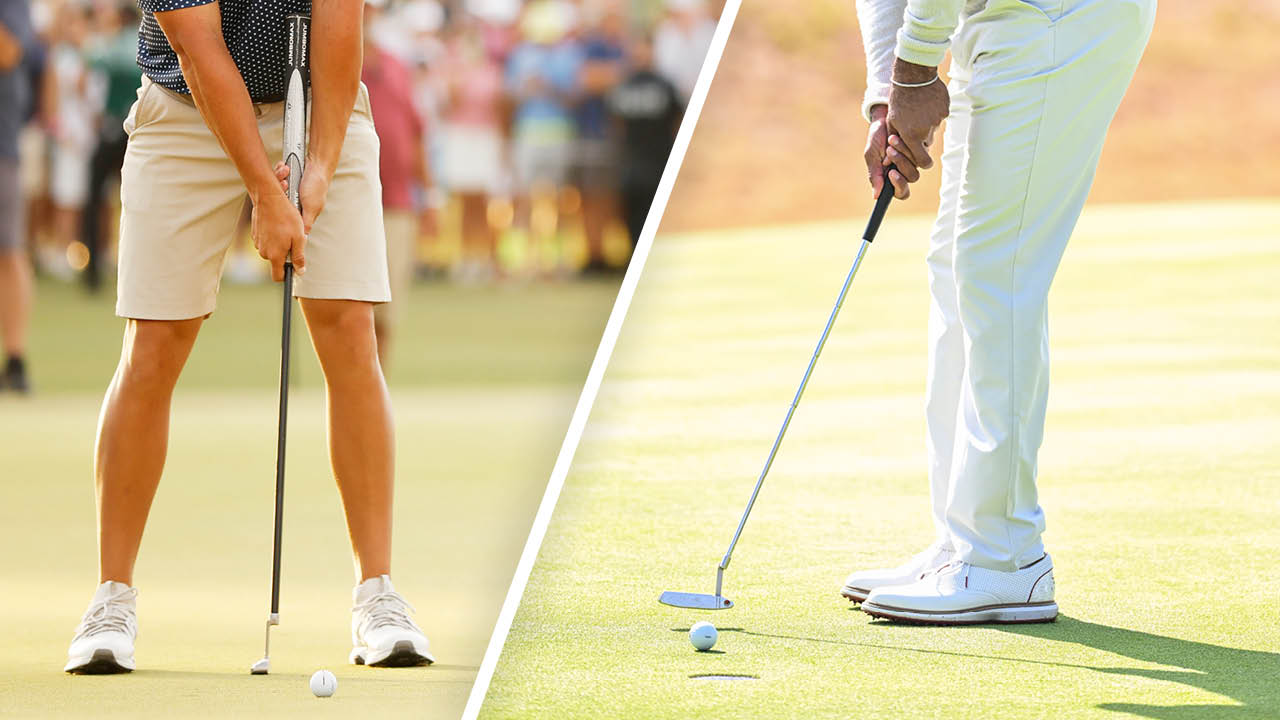
Understanding how to grip a putter is one of the key fundamentals in golf, but it can be difficult to know where to start. Getting the right 'feel' for you often comes down to a matter of trying each and deciding which fits best, something you can do very easily at home on a putting mat or using one of the best putting aids.
Ensuring you have the best putter in your bag provides its own advantages, but ultimately it's about how you wield the club that will dictate the results on the green. Before you make any permanent changes with your grip, try out some of the best putting tips and putting drills to experiment with different styles – it's the only way to know for sure which suits you best as an individual.
To help you kickstart your investigation, we asked Golf Monthly Top 50 Coaches Katie Dawkins and Andrew Jones to share the most popular putting grip variations...
How To Grip A Putter: Conventional
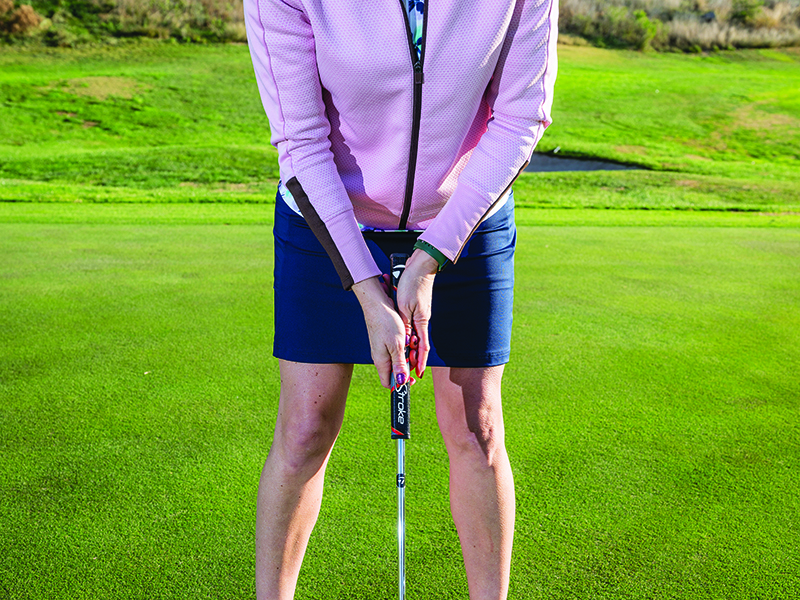
Golf Monthly Top 50 Coach Katie Dawkins demonstrating the conventional putting grip
You might feel completely comfortable executing the perfect golf grip with your driver or irons, but there is a little more room for creativity when it comes to the flat stick.
The most common method is the traditional right-hand-below-left grip, which most golfers start off with and continue to use successfully. Some of the best players ever have used this grip (think Tiger Woods or Rory McIlroy for examples of major success). As we grip our irons in much the same way, this conventional grip feels the most natural way to hold a putter.
The main difference is that, rather than holding the grip in your fingers as on a full iron shot, you grip the putter in your palms so they are looking skyward. This locks out the hands and encourages a hands-free pendulum action. Then, rather than interlocking your fingers underneath to unite the hands, use a reverse overlap position.
Place the index finger of your top hand over the cuticles of the bottom fingers. It will feel like you haven’t got a proper hold but that’s good as you can only use a rocking action from here, taking your wrists out of the stroke.
Get the Golf Monthly Newsletter
Subscribe to the Golf Monthly newsletter to stay up to date with all the latest tour news, equipment news, reviews, head-to-heads and buyer’s guides from our team of experienced experts.
The Claw
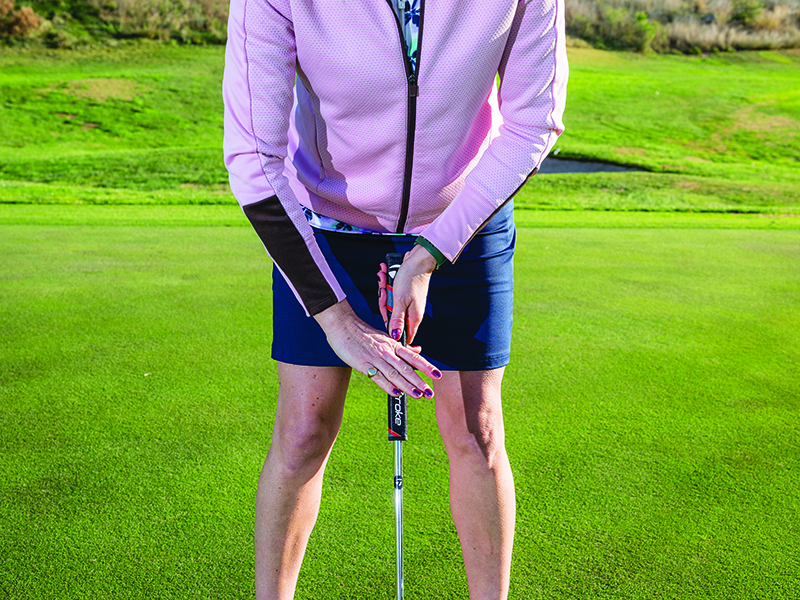
Golf Monthly Top 50 Coach Katie Dawkins demonstrating the claw putting grip
The claw grip for putting is quite a radical method, but nevertheless very effective for those who master it. Place your left hand at the top in the conventional position (as outlined below), with your right hand then holding the putter grip between thumb and forefinger and your palm facing your body (top photo). This is another great cure for the yips, even if it looks a little odd. It can take a while for you to place your lower hand on the club in a way that feels comfortable.
Left Hand Low
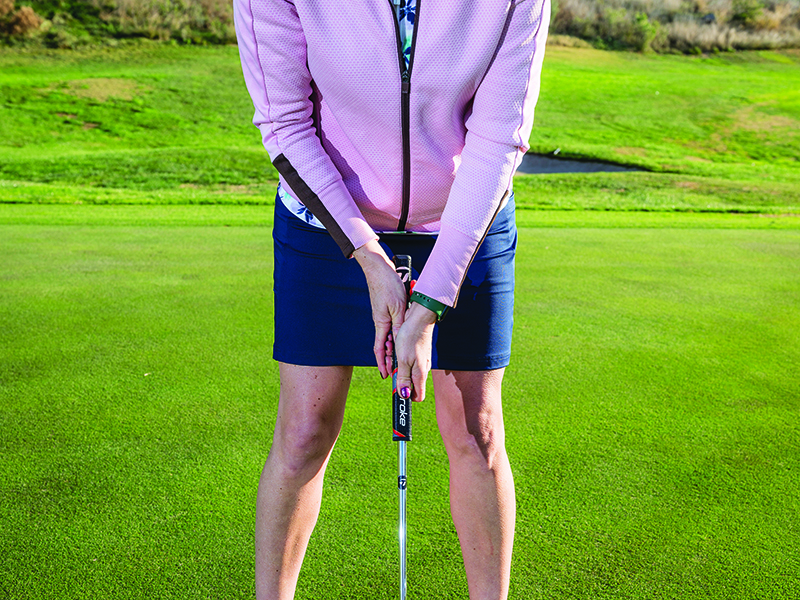
Golf Monthly Top 50 Coach Katie Dawkins demonstrating the left hand low putting grip
If you are currently struggling with the conventional grip, then the left-hand-low style could be a switch that rids you of your woes. It really locks your hands and arms together to get you stroking your putts more solidly and consistently. It is simply a reverse of the traditional putting grip with the left hand below the right.
Major Champion Jordan Spieth, who is one of the best putters on the PGA Tour, uses this grip. The main benefit is that it helps to take unwanted hand action out of the stroke – an ideal cure for the yips, especially important on those shorter putts.
The Pencil Grip
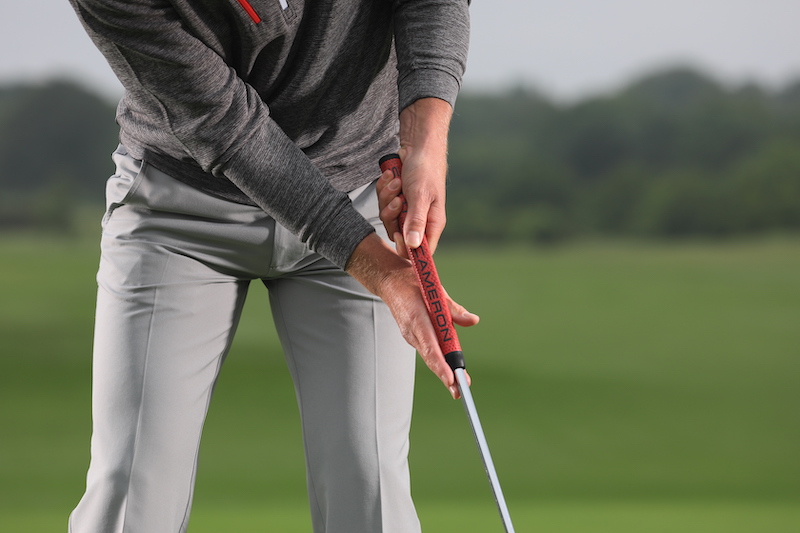
The pencil grip sees the lower hand working in a completely different fashion, mirroring the way you would hold a pencil. It gives you the feeling of a much lighter grip in your right hand, with the palm working more towards the target. Again, the idea is to stop the right hand dominating. It keeps the small-twitch muscles out of your stroke and utilises the big core muscles to control things.
It also keeps your right side more connected to your torso with the right elbow tucked in against your side – something that can promote a more consistent stroke.
The Saw Grip
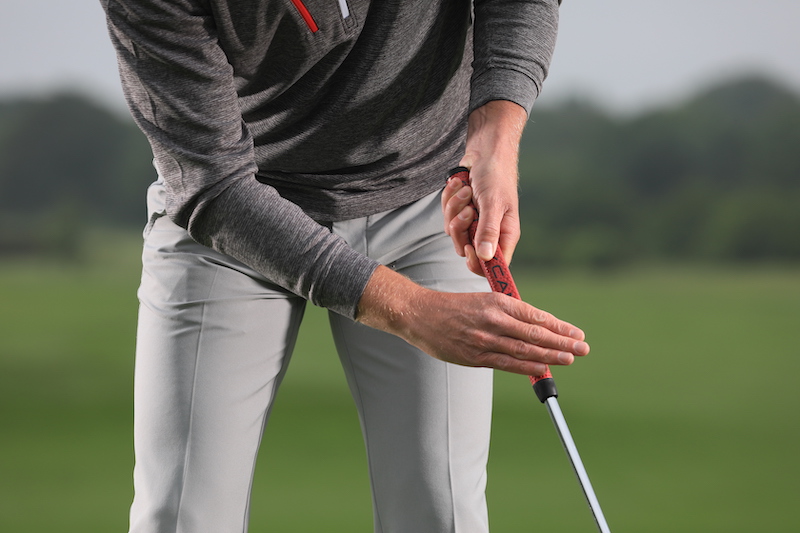
The saw grip, as you might imagine, is so-called because the right hand mirrors how you might grip and use a saw. The right-hand fingers sit on top of the grip pointing towards the target, with the grip sitting in the V between your right thumb and forefinger.
Unlike the pencil grip, it pulls the right elbow away from your body, so may not suit those who like to feel more connected to their torso. But it may prove a good option for those who like to feel more over the ball at address and who prefer a much straighter pendulum with less of an arc.
Armlock
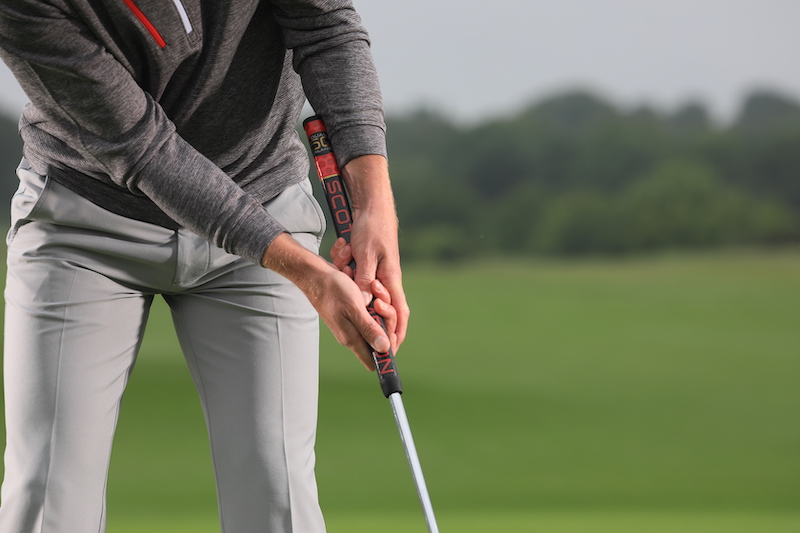
The armlock grip is an option for those using longer-than-standard putters. It has been popularised by Matt Kuchar, Bryson DeChambeau and others.
With the putter locked against your forearm, it almost feels like you’re bowing the left wrist out. There’s absolutely no chance of it breaking down through the ball. Historically, both Kuchar and DeChambeau have employed a fairly conventional right-below-left, right-hand grip.
This style of grip typically de-lofts the putter, so you may need to move the ball further forward in your stance or have the loft on your putter adjusted a little. This one may suit those who feel mechanics rather than feel will help them hole more putts.
Oversize Putter Grips
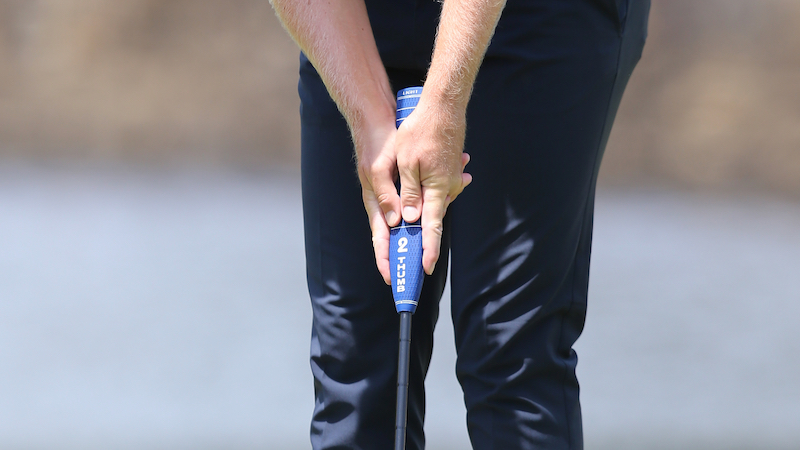
Finally, oversize putter grips of varying sizes are now very common. While some may still work with one of the putting grips above, the fattest grips are better-suited to what is known as a two-thumb grip. Indeed, one of the company’s making such grips is TwoThumb.
These grips are so wide that both hands can sit together at the same level, with the thumbs sitting side by side down the front of the grip and the forefingers pointing down either side of the grip.
This is another grip that gets the shoulders level and allows a pure pendulum motion back and through. It can work well on faster greens but may prove a little trickier to master from long range on slower greens.
If a conventional putting grip is no longer working for you, why not experiment with one of these other options to potentially get your putting back on track?

Katie is an Advanced PGA professional with over 20 years of coaching experience. She helps golfers of every age and ability to be the best versions of themselves. In January 2022 she was named as one of Golf Monthly's Top 50 Coaches.
Katie coaches the individual and uses her vast experience in technique, psychology and golf fitness to fix problems in a logical manner that is effective - she makes golf simple. Katie is based in the South of England, on the edge of the New Forest. An experienced club coach, she developed GardenGOLF during lockdown and as well as coaching at Iford Golf Centre, The Caversham- Home of Reading Golf Club and Salisbury & South Wilts Golf Club.
She freelances, operating via pop-up clinics and travelling to clients homes to help them use their space to improve.
She has coached tour pros on both LET tour and the Challenge Tour as well as introduced many a beginner to the game.
Katie has been writing instructional content for magazines for 20 years. Her creative approach to writing is fuelled by her sideline as an artist.
Katie's Current What's In The Bag
Driver: TaylorMade Qi10 9degrees.
Fairway: TaylorMade Qi10 5wood
Hybrid: TaylorMade 4 & 5
Irons: TaylorMade 770 6-AW
Wedges: TaylorMade Tour Grind 4 54 & 58
Putter: TaylorMade Tour X 33"
Favourite Shoes: FootJoy HyperFlex with Tour Flex Pro Softspikes on the course.
-
 Hainan Classic 2025 Picks, Odds And Predictions
Hainan Classic 2025 Picks, Odds And PredictionsDiscover the odds for the leading hopefuls at the inaugural Hainan Classic on the DP World Tour as the Asian Swing reaches its conclusion...
By Jonny Leighfield
-
 Zurich Classic Of New Orleans 2025 Picks, Odds And Predictions
Zurich Classic Of New Orleans 2025 Picks, Odds And PredictionsThe pairs tournament returns to TPC Louisiana, with Rory McIlroy and Shane Lowry hoping to defend their title
By Matt Cradock
-
 Sandy Lyle Shared 3 Top Tips With Us Prior To Winning The Masters in 1988... And They Could Still Save You Shots 37 Years Later
Sandy Lyle Shared 3 Top Tips With Us Prior To Winning The Masters in 1988... And They Could Still Save You Shots 37 Years LaterThe 1988 Masters Champion shared his expert tips in the January 1988 issue of Golf Monthly, but they are still absolute gems for amateur golfers to this day...
By Barry Plummer
-
 Are You More Accurate Than The Average Amateur Golfer? Peter Finch Can Help You Hit More Fairways In 2025
Are You More Accurate Than The Average Amateur Golfer? Peter Finch Can Help You Hit More Fairways In 2025There is no better feeling than striping one down the middle of the fairway, but many amateurs struggle with accuracy. Peter Finch has four pro tips to help...
By Barry Plummer
-
 Are You A Victim Of This Destructive Golf Swing Fault? Let Me Help You Fix It Before You Tee It Up This Weekend
Are You A Victim Of This Destructive Golf Swing Fault? Let Me Help You Fix It Before You Tee It Up This WeekendAn overswing in golf is a destructive habit which can cost us precious shots on the golf course, but PGA Pro John Jacobs has a quick fix to get us game ready...
By Barry Plummer
-
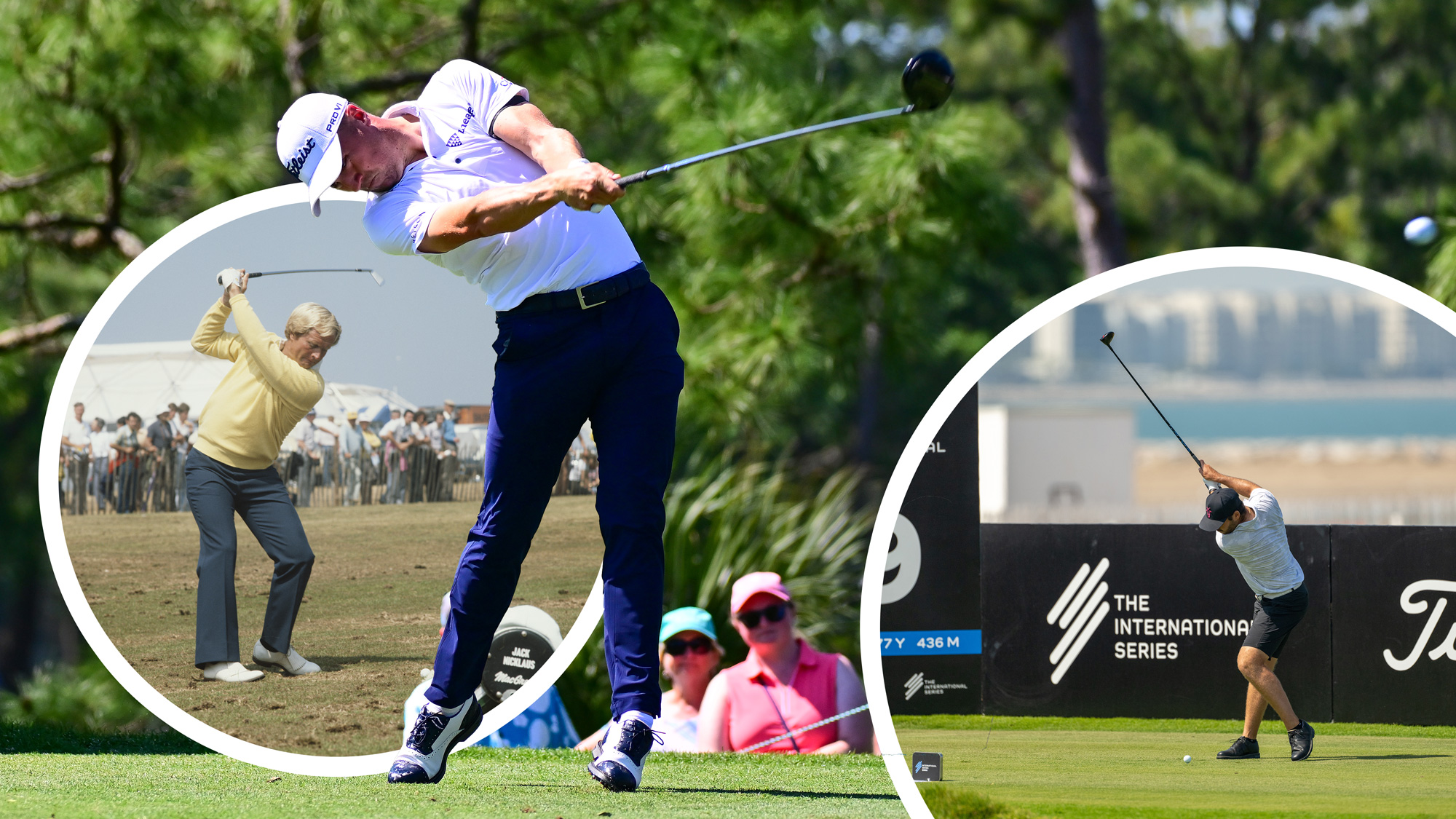 Do You Struggle With Distance Off The Tee? Try This Quick Fix To Make 2025 Your Biggest Golf Season Yet
Do You Struggle With Distance Off The Tee? Try This Quick Fix To Make 2025 Your Biggest Golf Season YetStruggling with distance off the tee could be a major reason why your handicap isn't coming down or your scores aren't improving, but our quick fix can help...
By Barry Plummer
-
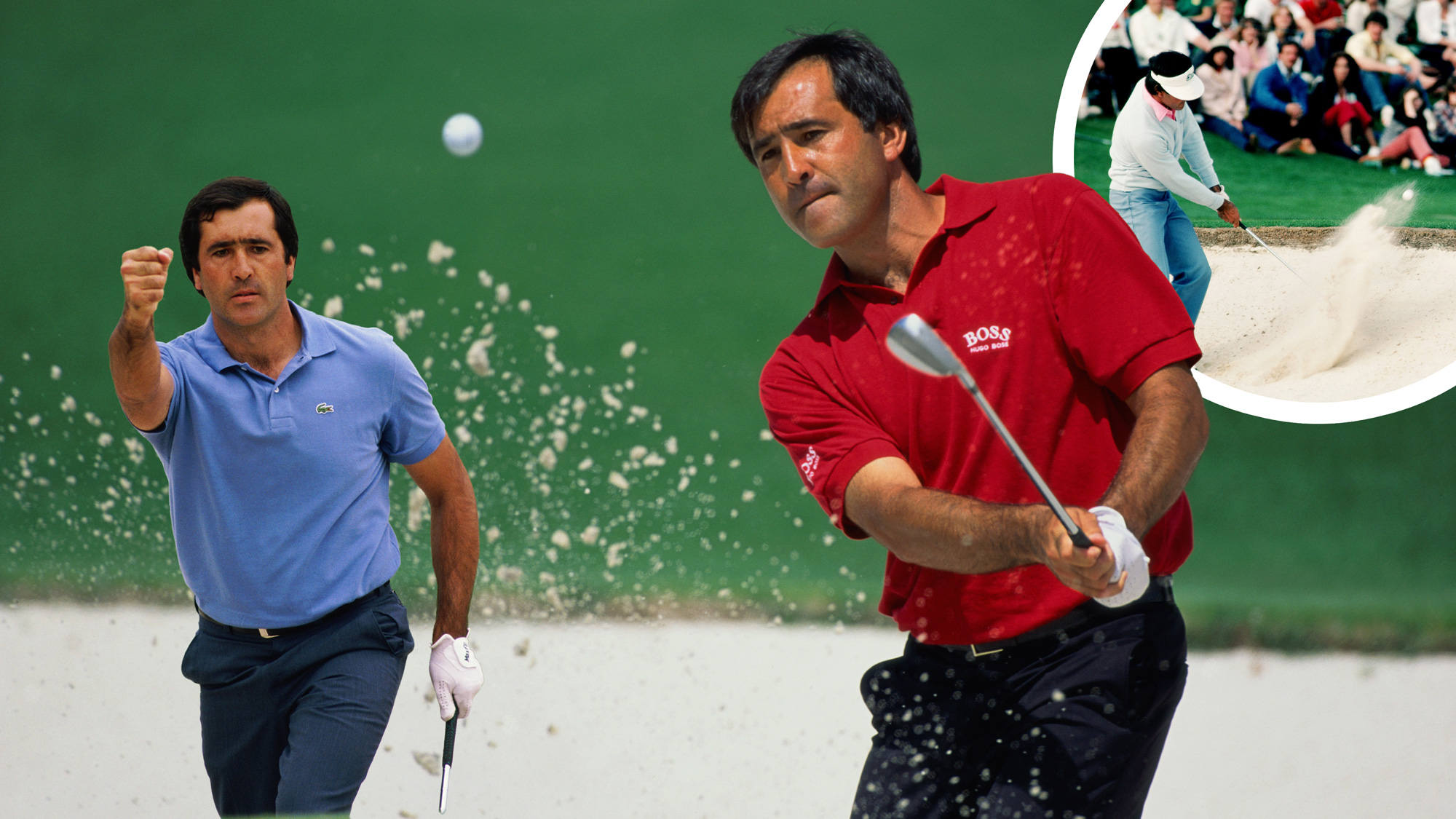 Seve's 'Lost' Bunker Lesson: Master Slopes And Transform Your Short Game Today
Seve's 'Lost' Bunker Lesson: Master Slopes And Transform Your Short Game TodaySeve's forgotten bunker lesson, from Golf Monthly's August 1983 issue, could hold the secret to better bunker play and supercharging your short game this season
By Barry Plummer
-
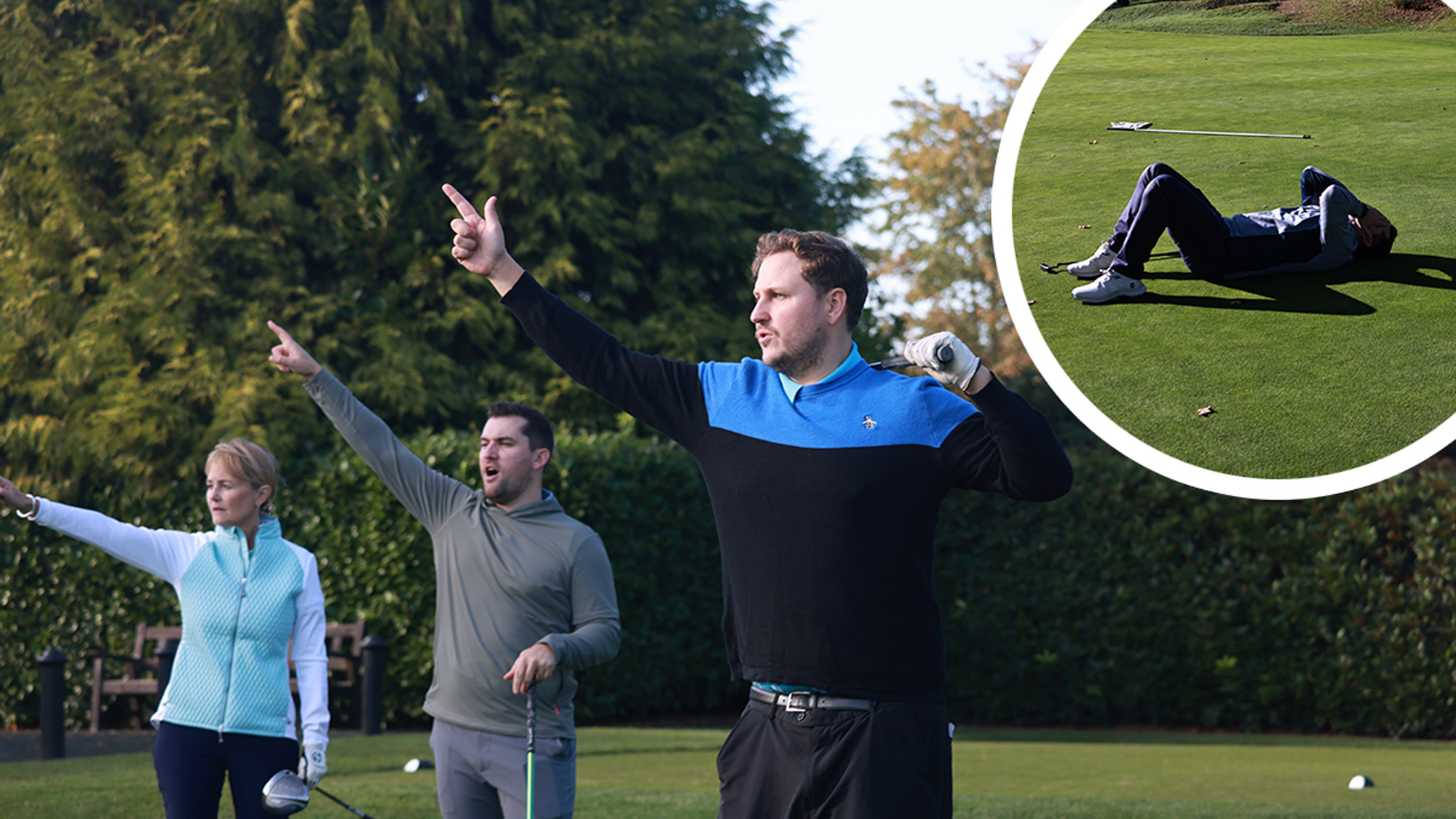 Is Your Golf Swing Failing You? This All-Encompassing Drill Can Instantly Save It
Is Your Golf Swing Failing You? This All-Encompassing Drill Can Instantly Save ItAre you struggling with your golf swing? Discover the all-encompassing drill that can fix common swing faults and restore your game. Get back on track today!
By Tom Motley
-
 I Attended An Exclusive Tee To Green Masterclass With A Top Golf Coach... Now I'm Sharing His 6 Transformative Tips With You
I Attended An Exclusive Tee To Green Masterclass With A Top Golf Coach... Now I'm Sharing His 6 Transformative Tips With YouFew golfers get the chance to spend an entire day with a top golf coach, which is why I can't keep his six expert tips to myself. Get ready to play better golf!
By Barry Plummer
-
 5 Things The Biggest Hitters Do To Generate Power In Their Golf Swing (And How You Can Copy Them)
5 Things The Biggest Hitters Do To Generate Power In Their Golf Swing (And How You Can Copy Them)Generating more power is a great way to improve your handicap and shoot lower scores. So, we analysed the biggest hitters in golf to help you hit it further...
By Barry Plummer
